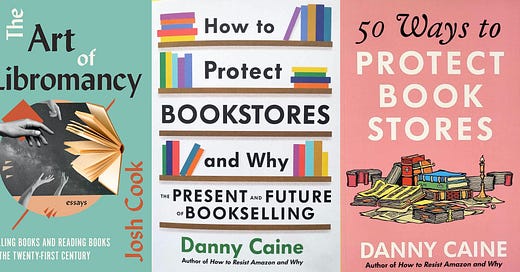Notebook: (2) Heartland Vistas
Read Part One of this post here
I am of course a very amateur observer here and Josh and Danny (and their publishers) know a lot more about this than I do. When asked Danny says with a note of weariness that booksellers talk about this sort of thing all the time. But I think with humility I might pose the counter-case to Josh a little differently than he puts it in his book. Josh represents a theoretical antagonist who considers the decision to stock books that Josh considers harmful to be making a purely commercial decision, or to place the moral decision-making weight on the customer; such a bookseller in his portrait rejects the idea that they can make meaningful choices about what books to stock or recommend. To such a bookseller “the bookstore is simply the place to go in the neighborhood to buy the books they already know they want” and “curation is almost entirely a sales-prediction skill.”
Keep reading with a 7-day free trial
Subscribe to Book Post to keep reading this post and get 7 days of free access to the full post archives.



